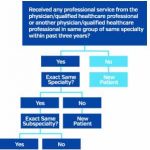Audit activity among Medicare and most third-party payers has increased in response to pressure to reduce healthcare costs. The return of billions of dollars to Medicare, Medicaid and third-party programs through these medical audit reviews has also increased. For example, the Government Accountability Office (GAO) 2014 Annual Report estimated that the Centers for Medicare &…





